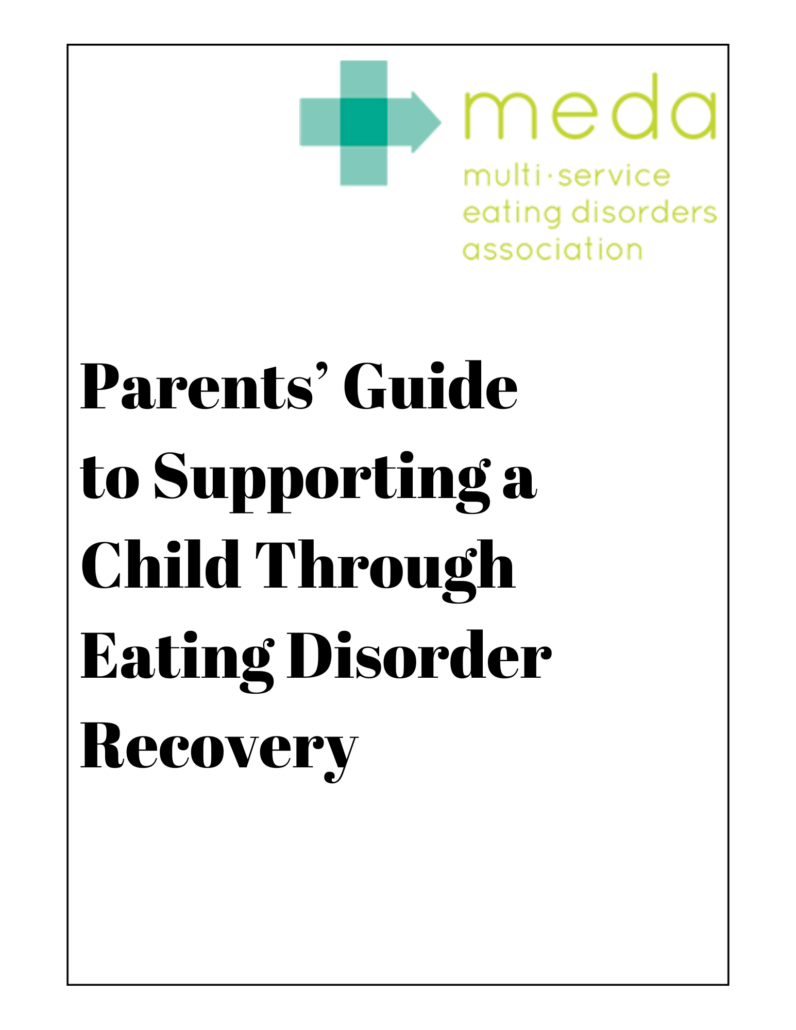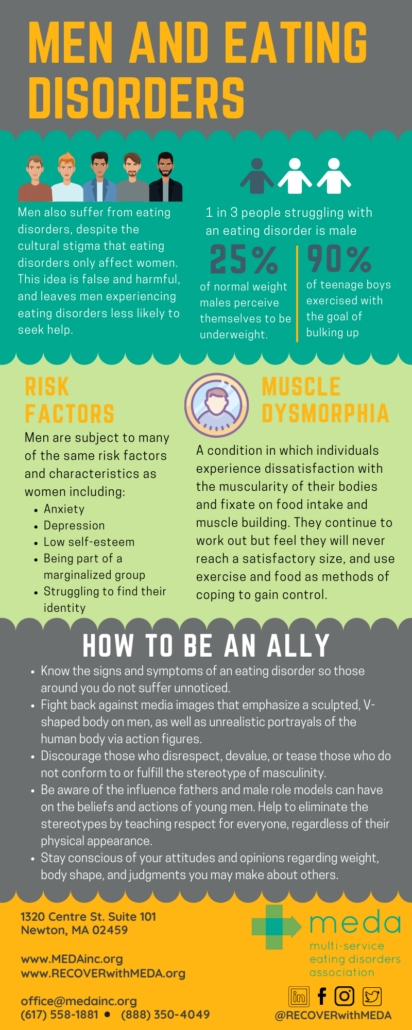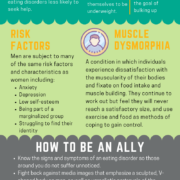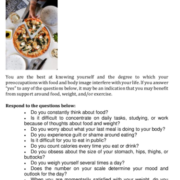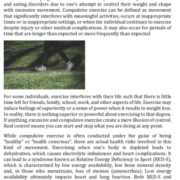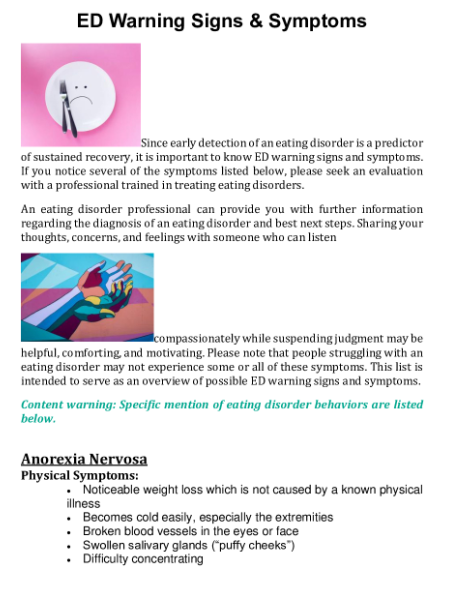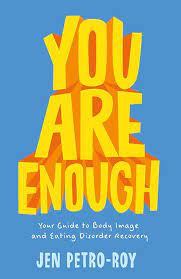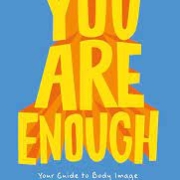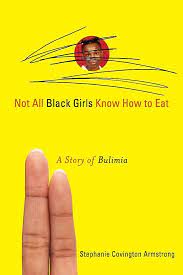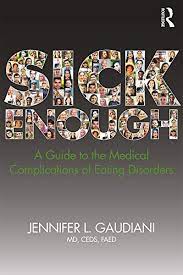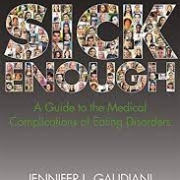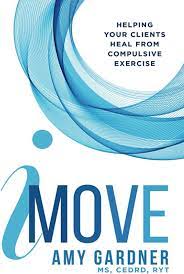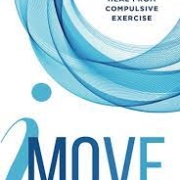Joan’s Story
I remember flipping through the Peace Corps brochure at the end of college, looking at it and wondering, “Could this be a way out?” I had been struggling with bulimia since my senior year of high school and was just starting to get a handle on recovery, but if I wanted to serve in an overseas assignment, I was going to need a clearance letter from my therapist.
Over the next 12 months, I doubled down on my efforts to overcome my eating disorder. Moving out of the dorms and into my own apartment after graduation helped immensely. I was away from the triggers I so often encountered within friend groups and family with whom I’d never learned–or felt safe–establishing boundaries. Being on my own helped me discover my natural cycles of energy, fatigue, and hunger as well as intuitive eating. It helped me to escape the compulsive binging and purging that had been the result of trying to live my life on other peoples’ terms.
By the Fall after graduation, my doctor was ready to sign off on my recovery and I was accepted for a Peace Corps in rural Niger. Living and working in a remote village proved not only to be a life changing experience but it cemented my ED recovery as well. Getting to escape my home environment and western media was a unique godsend. Life in Niger completely eliminated the constant low hum of guilt and shame; the guilt of feeling like I should always be trying to work out more or eat less–neither being an option in the village–and the shame of binging and purging, also not an option at the time.
Now, I’m not telling anyone to run away to the middle of nowhere in order to treat an ED. Not only is it not an option for most, but it did not magically solve my body image issues. You see, I came home from my two-year service, enrolled in grad school, and immediately relapsed from the stress of school and work. I went back to a therapist and was beside myself, asking questions like, “Why didn’t my time away solve this problem? Why didn’t medication and therapy fix all of this? I thought I was better.” The answer was that my first therapists and I had never really explored the underlying issues of my binging. What they, and perhaps I, thought was purely a superficial issue (i.e., body image, self-consciousness, etc.) was actually rooted in much deeper fears I had not recognized or felt safe naming when I was first being treated for bulimia at 18 years old.
Back then, I believed the doctors when they said that the problem was a “lack of self-love” but I struggled to find the metaphorical light switch in my mind, the one that would allow me to experience gratitude and pride in my body. So, I piled the shame of not being able to love myself on top of the shame of my binging and purging. I also tried my hardest to believe those doctors when they claimed societal expectations were “bogus” or that since I could not “prove” people were judging me, I should let go of perceived judgment. But I failed at that, too.
In fact, therapy back then always felt like a low-level gaslighting. I knew what I was seeing in magazines and movies and hit TV shows. All the A-list actors, clothing models, and successful performers seemed to have an obvious thinness in common. Did my doctors expect me to believe that none of that was real? That it was all in my mind? It felt real. The world felt real and my fear felt real. It all created a real lack of trust on my part. I started to wonder how, if they were that blind to reality, they could possibly help me. I was also getting frustrated by what I felt was a need for me to engage in performative self-confidence during therapy. It felt like they were trying to check some metaphorical box of “treatment” but I didn’t feel like I was experiencing improvement. I felt hopeless for wasting my parents’ money on the appointments–they were paying for whatever insurance didn’t cover–and quickly began to grow skeptical of the whole recovery process.
I realize now that recovery isn’t, and wasn’t, hopeless, but that the approach which was taken was not the right one for me. Framing recovery as a journey to self-love might work for some people, but it was, and still is, never going to work for me. The truth is, there are parts of me that I still do not love, and that I may never “love”, whatever that means in terms of body-positivity.- a movement and mindset that never really sat right with me. Essentially, that if you are not comfortable in your own skin then you must not love yourself, and that if you’re not 100% proud of yourself 100% of the time then you’re at fault or not trying hard enough. It was just compounding shame on top of shame. Almost like telling ED suffererers that they want recovery badly enough or that they’re trying to resist getting better– For me, the inability to express body positivity did not feel like a choice I was making, I was merely living-surviving-in a society that shames people for certain physical features and/or over-sexualizes certain body parts. A society in which I never felt safe loving myself in the first place. In fact, I’m still scared. I still ask myself the questions I always have, like, “Will I lose out on things in life because I look a certain way? Jobs? Relationships? Opportunities?” Or “What if a man isn’t attracted to me because of my curvy body?” Or worse, “What if a man is too attracted to me because of my curvy body?”
I feel silly even typing those questions out, but for transparency’s sake, I must admit that they have been the white noise of my life, even during therapy doctors laughed them off and downplayed my fears. It was a disillusionment that led me to stop attending sessions altogether sophomore year of college. And I might have been lost for good, had one of the volunteers in the college health clinic not shared with me a news story at the time. It was that of a young woman found dead in her car in a shopping mall parking lot. The cause of death: a ruptured esophagus. She had been bulimic. I suddenly realized how dangerous my addiction was and the life-or-death consequences of not seeing recovery through. Even though I was still scared of being in my skin and scared of continuing to gain weight during recovery, the potential of dying, especially at my lowest point, was far more terrifying. It was the turning point that saved my life.
PRECIPITATING FACTORS
When people ask me about the origins of my eating disorder it’s hard to know where to begin. There was no singular event that was the genesis for my way of thinking or behaving. It was more like a slow growth over time. Like a snowball that kept gaining mass and momentum. Or like the metaphor of the frog in the boiling water. The story goes that if you place a frog in boiling water, it will immediately leap out. But if you set a frog in warm water and slowly turn up the heat, it will not jump out. That’s because the frog adapts to the increase in temperature. It grows used to the heat. It knows only the heat. It does not realize there is any other way of existing beyond the heat, even when it is burning and frantic to get out. That’s how dysfunction works. It’s not always obvious, or acute. Sometimes it’s more subtle. Hidden. Insidious. Designed to intimidate people into silence. But I finally have the courage to say it out loud: environmental factors matter. And what goes unspoken, goes untreated.
I grew up in what I could consider a stable home environment: two loving parents, roof over my head, no physical abuse, no obvious addictions, or obvious signs of co-dependencies. Sure, there were fights and tension, but we just learned how to dance around it. How to let things pass. Or how to hold on to them. Inside. How to use passive aggressive behaviors to express emotions like confusion, fear, and anger until it boiled over into the next fight. And the next one. And the next one. Perhaps that’s why doctor after doctor, therapist after therapist, would go on to tell me that I grew up in a “chaotic home environment”, even though it is a phrase neither they, nor I–would have ever relayed back to my parents.
And why would I want to? What right did I have to criticize them back then? How could I blame the two people that had worked so hard to keep it all together: to pay the mortgage, to get me and my siblings into a good school system, to but my expensive racing suits for swim team, to get my brother the best treatment for his ADD, to get my sister help for her mood swings, to get my father treatment for his PTSD? Who the hell was I to criticize them for how it all turned out? I didn’t have those problems. I didn’t have any problems. In my mind, I was blessed. Lucky. Fine. I honestly thought that if I felt any ounce of frustration at the situation, it would have made me look ungrateful.
I realized early on that the only way to deal with my feelings of discomfort and helplessness at home was to stuff it down inside until I could figure out how to get away from it. As a teenager, the only escape I saw was college. And so, I consistently enrolled in the hardest classes and got involved in as many extracurriculars as I could, even when I was overwhelmed. “Perfectionism”, “all-or-nothing thinking”, and “catastrophizing,” may not have been terms I was familiar with at the time, but they were the operating system with which I was hard-wired. All I knew was that any budging on course load or any attempt to take it easy on myself was a threat to my potential escape plan, and so I took on the weight of it all. I was balancing the stress of applying to as many out-of-state reach schools as I could while also going through puberty; gaining weight and curves as a tomboy whose whole identity had been that of an athlete, now trying her hardest to conceal wide hips, big breasts, and a round tummy that didn’t look the way her friends did in crop tops, low rise jeans, or swim team racing suits.
As college rejection letters trickled in and the weight piled on, I became a mess of desperation and failure. Feeling completely helpless and ashamed, I cried in secret in my room, asking myself questions like, “What was wrong with me? Why can’t I win? Why am I so cursed?” And I remember using the word ‘cursed’ because that’s how I viewed my genetics. My DNA. While my mother and my twin sister were thin and slight, I had developed a huge chest and huge hips and so I figured I was taking after my father who was in a larger body his whole life. I was afraid I was becoming that, afraid that maybe people would look at me like how I figured people looked at him. And since I could not make that fear disappear, or the weight disappear, I became bitter and full of anger. Another feeling I did not have a name for at the time. Besides, anger wasn’t something I was supposed to feel. I was the one in my family who avoided conflict. I was the “good” child. I was “better” than that. Better than anger. Or so I thought.
Again, I did not realize I was angry at my father at the time. I just knew that it felt like my skin was stinging and my insides were on fire every time I heard him sneak into the kitchen at night to graze on a box of cereal for 15-20 minutes at a time. His fist pummeling into Honey Nut Cheerios, the sound of his hand drawing a mouthful to his lips, the loud crunching that pierced the air and taunted me in me in my bedroom down the hall, curled up pressing my hands so hard to my ears I didn’t care if I burst my eardrums by accident. To this day my blood pressure goes from zero to sixty if I hear someone crunching hard food like cereal or chips. To this day, it’s still the sound that triggers me the most.
I know now that I was upset with my father but had no way to verbalize it. I remember the questions I asked myself: Why is he doing that to himself? Why can’t he stop? Why can’t I just say something? Why do I feel like Mom would just get really angry at me if I did? I asked those questions every night, in as ritual a fashion as his midnight snacking. And even though I could appreciate that he had been through traumas in his life, and that perhaps he was as helpless to his weight and food issues as I was, I was still upset that he could not stop eating. I thought that people were judging him and I was angry that he couldn’t make it stop, because I didn’t want anyone judging my dad from the outside. He was a good guy. He was my hero. What if they can’t see that? I thought. What if they can’t see past the fat? What then? What if he has a heart attack right now? I suppose I was frustrated that he wasn’t fighting harder to stop that from happening. Or perhaps I was as scared of being judged by others as I perceived them to be judging him.
At the end of the day, my desperation to get away from home and to get out of my “cursed” skin became too much to bear and that’s when I discovered a “way out”. Or so I thought. A high school teacher showed us a movie about the dangers of eating disorders during health class sophomore year. The film she chose was about a thin woman with bulimia and featured a very svelte, very popular actress at the time. And while I cannot blame my teacher or that actress, I do remember it being the first time I considered the possibility of purging as a way to contain all of the things I felt were spinning out of control around me. I talk about this time of my life in a book I am writing about overcoming my bulimia. This excerpt encapsulates the genesis of my ED and what I was feeling at the time:
“It was the late 90’s and the height of “heroine chic”. She [actress] was but one in a whole generation of [women] skyrocketing to fame the more they could make themselves look like skeletons in slip dresses, skin and bones in silk and backless gowns, spaghetti-strap tank tops pasted to their emaciated bodies. I was surprised my health teacher thought any teenage girl could possibly accept the idea that trying to be skinny will make your life worse when the media was bombarding us with the message that trying to be skinny will make your life better.
That resonated with me as an insecure 16-year-old. I was thick and muscular, with large breasts and wide-set hips that had invaded my body overnight the summer after eighth grade. Puberty came late but had struck with a vengeance, dealing the tomboy in me a humiliating defeat. I thought that losing weight would make my life easier, undo some of that embarrassment, turn the dial down on the fear that came along with being curvy. I reasoned that if I could change my body then I would look like I controlled it, and if I could look like I was in control, then no one would dare take advantage of me. In my mind, being skinny offered protection.
WHAT DID IT FEEL LIKE TO HAVE AN ED? WHAT WAS I TRYING TO SAY?
Purging became something that made me feel powerful. Not necessarily in control. In fact, I intentionally do not use the phrase “in control”, which I feel is one overused in treatment. It’s an easy tag, a simple way to label the sufferer and say, “This person just wants to control things and if we can address the need for control then we can fix them.” But this was never about control for me. I never wanted to be in control. I just didn’t want to feel helpless and I think it is an important nuance that often gets misdiagnosed. After all, isn’t it a lot easier for a clinician to tell someone “You need to accept not being in control,” rather than “You need to accept feeling helpless”?
Hurting myself by binging and purging was a way to counteract that helplessness. To express my pain. Hurting myself was a way to express, to expel, the hurt I felt at not being able to express my anger and fear at home. The things I told myself in those moments, the hate and the disgust I hurled at myself in the mirror were really exaggerations of things I wanted to say to the people around me but could not. Years of frustration boiling over. Years of being told to “just drop it” if I spoke up about problems in the family. Years of being told that it was “my fault” if I was distressed over someone else’s inappropriate behavior. Years of feeling so hopeless that at some point I just threw my hands up and thought, “Screw it, I don’t even care how badly I’m hurting myself because what’s the point? I’m trapped in this home dynamic and I’m never going to get out. Or get to be like my friends. Or like the successful people in this world: light and pretty and blessed. Not heavy and ugly and cursed.”
And that’s how it felt for those years from high school into college. Like being the frog in the boiling water without having the permission to say it out loud. Maybe that’s why doctors did not pick up on how bad it was. Or thought the answers lie in simply telling me to journal about my feelings or to “go for a walk instead of binging.” They thought I was a frog in warm water looking for some options, they didn’t understand that I was burning up, reacting to pain and deep-seated compulsions, not acting on reason or making decisions in a vacuum.
The good news is, when I graduated college and moved into an apartment alone it was like all of the hot water drained away. It wasn’t that treatment–i.e., medication, therapy, self-work–had not worked, but more so that it had always felt like ice cubes tossed into the boiling water, helping some, but not fully healing. Which is not to dissuade anyone from seeking help or trusting the process, but rather a call to clinicians and parents to acknowledge how much environmental factors do feed into eating disorders. And I’m not blaming my parents for my actions or my “chosen” coping mechanism. I don’t think they had any idea how bad my eating disorder was. Or how bad my people-pleasing was. Or that I was learning how to do that instead of learning to set boundaries. That my being “a good little girl” was symptomatic of how I was just trying to keep the peace in what I felt was an unpredictable space. That my habit of going along to get along ended up bleeding into my first friendships, some of which were not borderline toxic–a trait doctors would tell me I sought out in order to recreate familiar dynamics, a way to reach for safety and security by proving my loyalty to others.
Note: If you are not aware of what people- pleasing looks like or how detrimental it can be, here’s an example of some typical thoughts that crossed my mind on a daily basis back then: “My friend wants to hang out but I have a paper due? I guess the paper will have to wait. I don’t want my grade to suffer but I also don’t want to get in a fight right now. Best to just give in to what she wants, even if I end up punishing myself with a binge later.” Or, “My friend wants to order pizza but I already ate? I guess I’ll have to just eat again and find a bathroom because that’s the lesser of two evils. It’s much easier to punish or hurt myself than to hurt her feelings by saying, ‘No’.”
Again, all of these things were swirling around in my head and I don’t think I had a true ability to recognize them or the courage to combat them because I had convinced myself that I was fine. Because I had to be. Because not being fine might draw attention to problems at home and then what? Would my parents get angry? Would there be retaliation? They had spent hundreds of dollars for me to go say things to psychologists in private, to brainstorm “behavioral changes” only to walk right back into an environment where it didn’t feel safe or good to put any of that into practice. If it’s not obvious by now, what I was trying to say through my eating disorder was that everything was not fine. That I was not okay. And at the same time, I am lucky that my mother finally recognized it.
WHAT DID RECOVERY LOOK + FEEL LIKE?
I’ll never forget that day in May, senior year of high school, two weeks before prom. The day my mother stopped me on the way out of the bathroom and said, “You have a problem. Can I take you to the doctor?” Apparently, she had overheard me purging more than a few times and had already researched and contacted an eating disorder specialist. Although I was mortified to have had my secret revealed, I was relieved to no longer be alone in my shame.
While I struggled to reconcile those feelings of frustration at home with gratitude for my mother’s care, I began seeing the psychologist once a month. Things started off alright. It felt good to talk to someone about all I had been hiding. However, when I headed off to college, a few months later, things went off the rails and I began bingeing more to deal with the stress of school and socializing all while trying to look good and impress all of these new strangers. Everything felt like a crushing wave of defeat, like there was no way out for me and that I was going to be stuck forever in that state of unbearable stress and fatigue.
For better or worse, the physical and mental loads became so high that I could no longer deny their existence. I had to face it, I–the perfect student, the perfect child–was overwhelmed and failing. When I checked in with my therapist over Christmas break, I finally started using words like stress, confusion, fear, exhaustion, etc. Words my younger self, so desperate to get out of my house and away from my hometown, would never have uttered for fear of those emotions standing in the way of my success and my escape from it all. Before returning to school in the Spring, the doctor prescribed a high dose of medication to help with Generalized Anxiety Disorder, the first time anyone had officially used the diagnosis with me.
After a few weeks, I could feel it starting to work and take the edge off, but I can’t say it made me feel “good” or “better”. It just kind of numbed my brain. And made me really tired. And hungry. It was like a double-edged sword: enough to slow the racing thoughts and allow me to better rationalize with myself yet zapping me of the energy I needed to succeed in school, and more importantly, to keep up with a regular exercise routine. I gained weight and by the end of sophomore year felt like I had gone all the way back to square one: mortified and hopeless. At some point, I just resigned myself to the mantra that “the only way out is through”; that I might have to endure the discomfort of body changes and fatigue short term if it meant a way out of the 24/7 bulimia cycle in the long run.
It was around this time that I heard about the young woman who had died from the ruptured esophagus and it just reassured me that I needed to keep going. I researched survivor stories and found strength in those, too. I sat with my fear, my shame, and discomfort, and found a lot of gray areas among my black and white thinking. I accepted that I could not just magically wake up one day and stop. And that I wasn’t weak or a failure for that. I was able to find some room for permission, and grace, to go at my pace of recovery. I started to set small goals around behavior usage. By senior year, I had made great progress. By the time graduation rolled around, I was able to see light at the end of the tunnel. For the first time, I had faith in my ability to manage my life and create a future for myself.
Likewise, I learned to be very cognizant of the living and working environments in which I choose to remain or those of which I choose to leave. And while I sometimes feel ashamed that old triggers and fears and shame still follow me, I am proud of how fiercely I have protected my peace and gotten myself out of situations that threatened to disrupt my years of recovery. I may not be perfect, I may still struggle to set boundaries, I may still struggle to talk to my fear and my all-or-nothing thinking, but I know I will never put myself back in a position where I’m taking all of that out on myself. I have learned to stand up for myself. I have learned to communicate my fears. I have learned to be more honest with those around me. I know that what I have gained in finding my voice is far more than anything I have lost.
The truth is, I have gained understanding with family members, even if we need more space at times. I have gained healthier friendships, even if it has meant letting go of others. I have found jobs that align with the work-life balance I need to maintain recovery. I have gained faith in myself and a wealth of pride and confidence to replace the years of shame and confusion. I have gained a pride in surviving and getting to the other side of my fears, to the other side of a wall I never thought I would scale. I have gained these words and I want them to be heard. I want someone else who may be feeling similar fears or struggling with similar things to not feel so alone in that. I want you to know that I feel you, I see you, and that there is goodness waiting for you in recovery.

